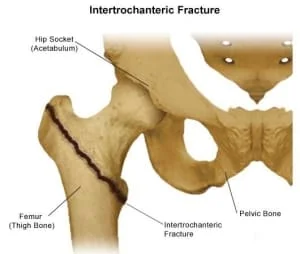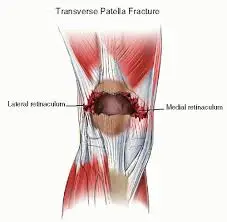What Is The Best Painkiller For Knee Pain?
Introduction:
People of all ages frequently have knee pain, which can be caused by wear and tear over time, arthritis, or trauma. Effective knee pain management calls for a mix of therapies, such as painkillers, lifestyle modifications, and occasionally medical procedures. This article examines the top knee pain relievers and how well they work for different diseases.
Knee pain can have a variety of causes, such as:
- Overuse
- Arthritis
- Baker’s cyst
- Infection in the joint
- bursitis
- torn cartilage
- strain or sprain.
Types Of Painkillers For Knee Pain:
Non-steroidal anti-inflammatory Drugs (NSAIDs):
They function by lowering pain and inflammation. For mild to moderate pain, over-the-counter NSAIDs like ibuprofen and naproxen work well; for more severe cases, stronger prescription NSAIDs could be advised. Long-term use, however, may result in kidney problems, gastrointestinal pain, or ulcers.
OTC pharmaceuticals, such as acetaminophen or nonsteroidal anti-inflammatory drugs (NSAIDs), can be used to treat mild to moderate knee pain. For the treatment of mild to severe pain, several NSAIDs are available over the counter.
Acetaminophen (Paracetamol):
For people who are unable to use NSAIDs, acetaminophen is a suitable substitute. Although typically safe, it should be taken according to the specified dosage because overuse can cause liver damage. Acetaminophen is sometimes used to treat osteoarthritis, a kind of arthritis that affects the knee and other joints.
Acetaminophen-containing drugs include, for example:
- Panadol
- Tylenol
- Actamin
- FeverAll.
Topical Pain Relievers:
NSAIDs, capsaicin, or menthol-based gels, lotions, and patches relieve pain locally with few systemic adverse effects. These are helpful for those with modest knee pain or those who would rather not use oral drugs.
Opioid Pain Relievers:
When alternative therapies fail to relieve severe knee pain, doctors prescribe opioids like codeine or tramadol. However, they should only be used for brief periods of time and under close medical supervision due to the possibility of addiction and adverse effects like nausea and drowsiness.
Corticosteroid Injections:
These directly reduce inflammation in the knee joint, which significantly reduces pain. However, they are usually only done a few times a year because repeated use can impair joint structures.
Injections for knee pain:
A doctor might give an injection to someone who is experiencing excruciating pain from an injury or disease, such as arthritis. Injections of hyaluronic acid or hydrocortisone may be suggested by doctors.
Hydrocortisone injection:
This is a corticosteroid injection. The knee joint may receive a direct injection of hydrocortisone from a physician. Many types of knee pain, such as bursitis, arthritis, and injuries, can be treated with this drug.
Hyaluronic Acid Injections:
To boost the knee’s supply of hyaluronic acid, a physician may inject it. In addition to reducing pain, this may also help with other knee joint issues like osteoarthritis.
Hyaluronic acid injections, which are frequently used to treat osteoarthritis, lubricate the knee joint, minimizing pain and enhancing mobility. For people who don’t react well to oral painkillers, they are especially helpful.
What’s the Best Painkiller for You?
The reason, intensity, and specific medical conditions all influence the appropriate pain reliever for knee pain. For mild to severe pain, acetaminophen or NSAIDs may be adequate. Injections or prescription drugs may be necessary for severe pain. To find the safest and best course of action for your particular situation, always get medical advice.
Conclusion:
Effective knee pain management calls for a combination of lifestyle modifications, painkillers, and, in certain situations, medical procedures. Stronger drugs or specialized treatments may be necessary for severe or chronic pain, even if over-the-counter pain relievers can usually assist. Seeking medical advice guarantees that you will get the best care for your knee pain.
The origin and intensity of a person’s knee pain can influence the medicine they are prescribed.
For mild to severe pain, a person may use over-the-counter medications like naproxen or ibuprofen.
A doctor may recommend medicine, such as a greater dose of NSAIDs or COX-2 inhibitors, if the pain is more severe. Occasionally, a physician may inject hyaluronic acid or hydrocortisone into the affected area. Applying ice, elevating the knee, and relaxing are other at-home methods for treating knee pain.
FAQs
What is the best knee pain spray?
Joint and muscular pain can be promptly relieved with Volini Maxx pain Relief Spray. Diclofenac, which has a 2% potency, is combined with methyl salicylate, linseed oil, and menthol all of which are recognized to relieve pain.
What is the best ointment for knee pain?
One of the greatest pain relievers for joint, neck, knee, and muscle pain is Ortho Pain Relieving Ointment. It is advantageous for promoting comfort and relaxation in the body’s muscles and joints.
What is the best tablet for joint pain?
NSAIDs, or nonsteroidal anti-inflammatory medications. OTC dosages of these medications, such as naproxen sodium (Aleve) and ibuprofen (Advil, Motrin IB), may help reduce pain. They may help reduce inflammation when used at higher recommended dosages.
Which medication eases knee pain?
NSAIDs (non-steroidal anti-inflammatory medications) can be used to relieve osteoarthritis pain. These drugs ease pain and lessen inflammation.
Which oil is best for knee pain relief?
The coconut palm is the source of coconut oil, which is extracted by pressing the dried “meat” of an adult coconut. According to some reports, coconut oil can help with knee pain, muscle cramping, and immune system strengthening. Knee pain may benefit from the use of coconut oil.
When it comes to knee pain, which fruit is best?
Fruits high in antioxidants and vitamin C are typically suggested for the treatment of knee pain. Oranges, kiwis, strawberries, pineapples, and blueberries are a few particular examples. These fruits can support the creation of collagen, which is essential for the integrity of joint cartilage, fight oxidative stress, and lessen inflammation.
Which pain reliever is the most effective?
According to MedlinePlus, opioids are highly effective, but they should only be used under a doctor’s supervision because they can have major negative effects and increase the risk of addiction.
Which tablet is the greatest for pain relief?
Since the most effective alternative varies on the type and level of pain, individual health problems, and potential side effects, there isn’t a one “best” pain relief tablet for everyone. Acetaminophen (like Tylenol), NSAIDs (like ibuprofen, naproxen, or aspirin), and occasionally prescription opioids are other popular and extensively used alternatives.
What vitamin helps with knee pain?
vitamin D. Researchers studying rheumatoid arthritis have discovered that vitamin D deficiency is common among those with the disease. Chronic pain may result from low amounts of this vital vitamin. It may improve the effectiveness of your arthritis medication when taken as a supplement.
When it comes to knee pain, which drug works best?
The best oral medications for OA are NSAIDs. These consist of diclofenac (Voltaren, among others), naproxen (Aleve), and ibuprofen (Motrin, Advil). All of them function by preventing the enzymes that produce pain and edema.
Which medication is most effective for knee pain?
Applying lotions that contain numbing agents like lidocaine or capsaicin—the ingredient that gives chili peppers their heat—to the injured knee helps some individuals feel better.
References
- Geng, C. (2023, November 8). What is the best medication for knee pain? https://www.medicalnewstoday.com/articles/best-medication-for-knee-pain
- Arthritis pain relief: risks and benefits. (2025, April 23). WebMD. https://www.webmd.com/osteoarthritis/oa-pain-relief-risks-benefits
- Park, M. (2024, October 13). Which medicines treat knee pain? WebMD. https://www.webmd.com/pain-management/treat-knee-pain-medication







